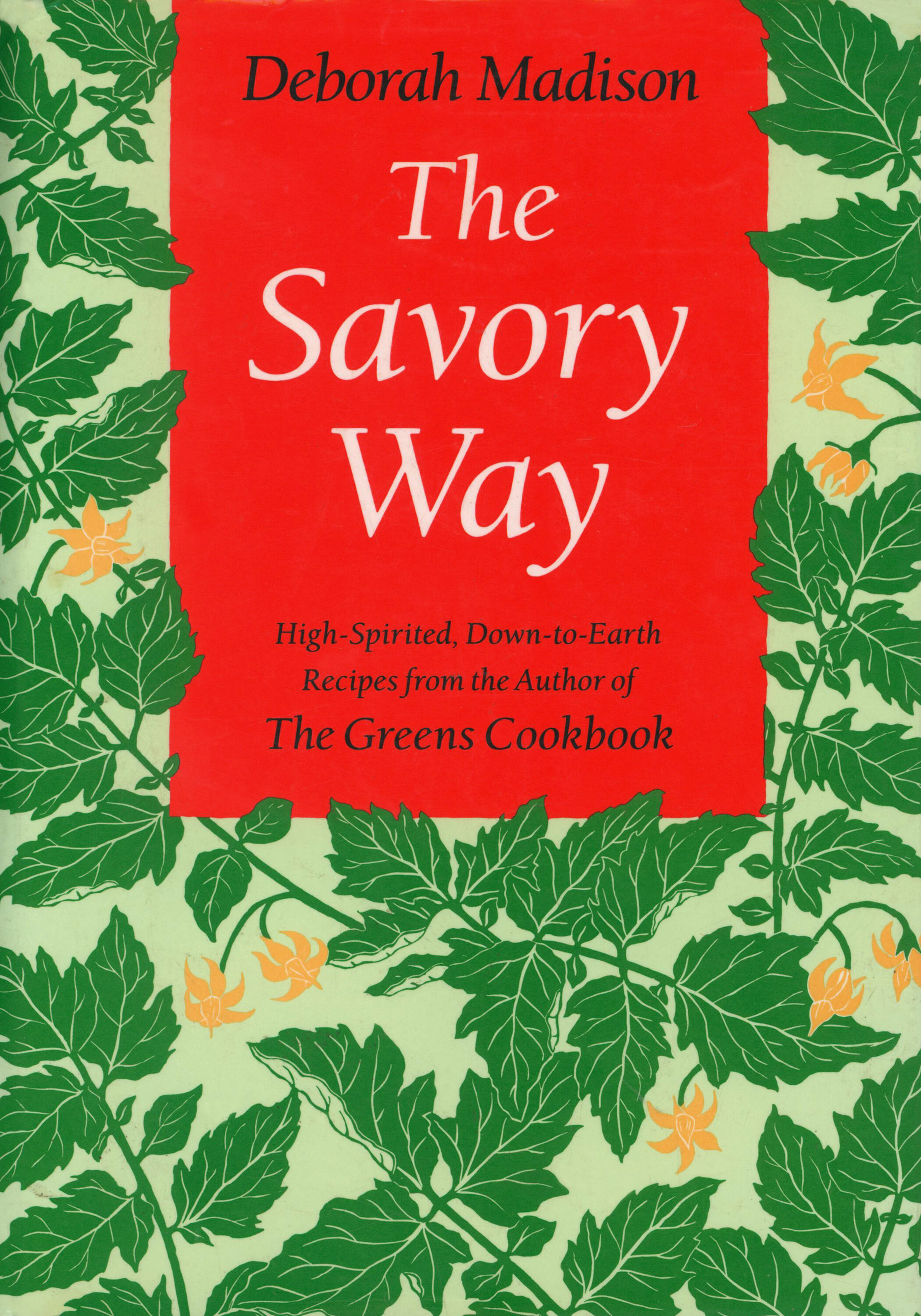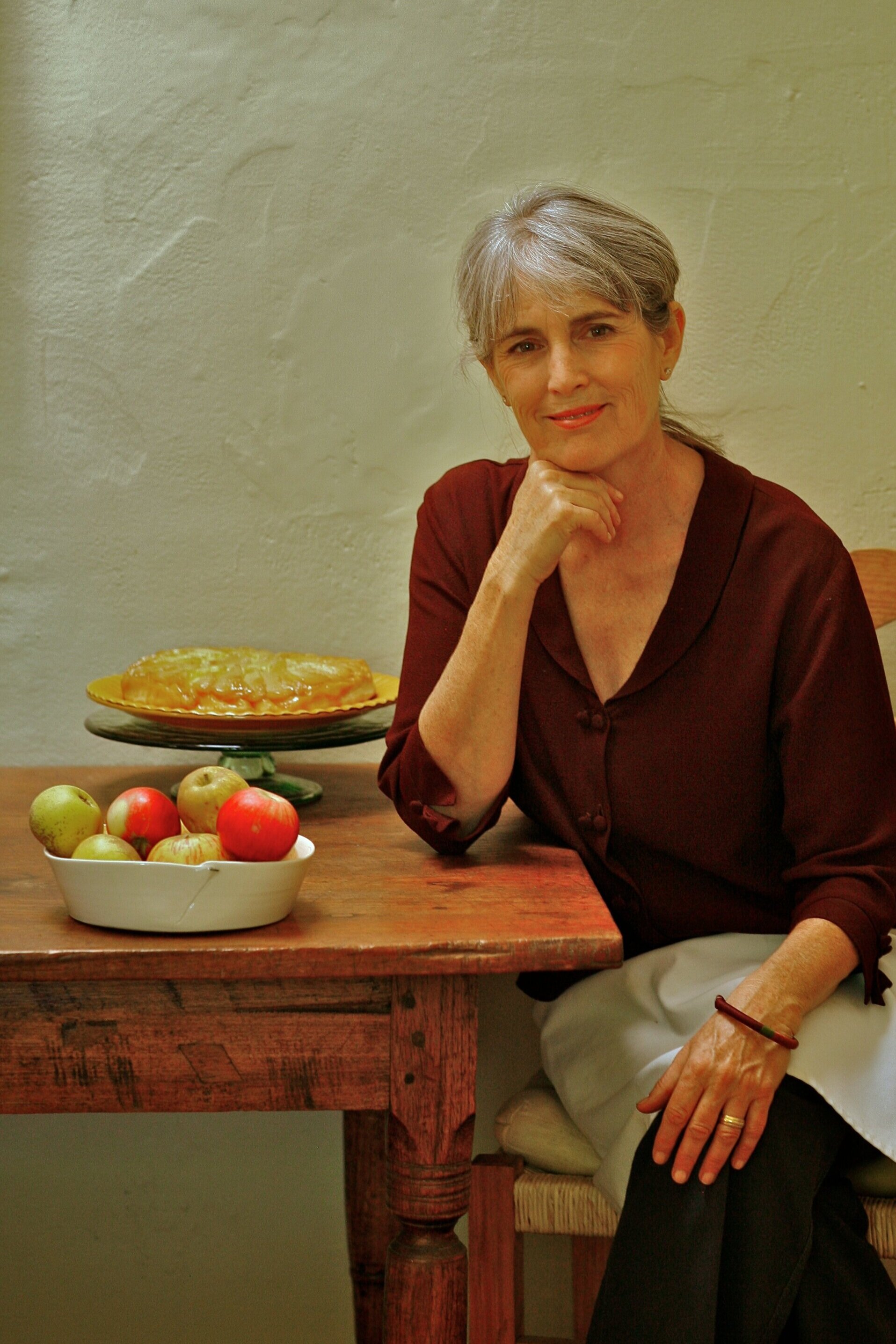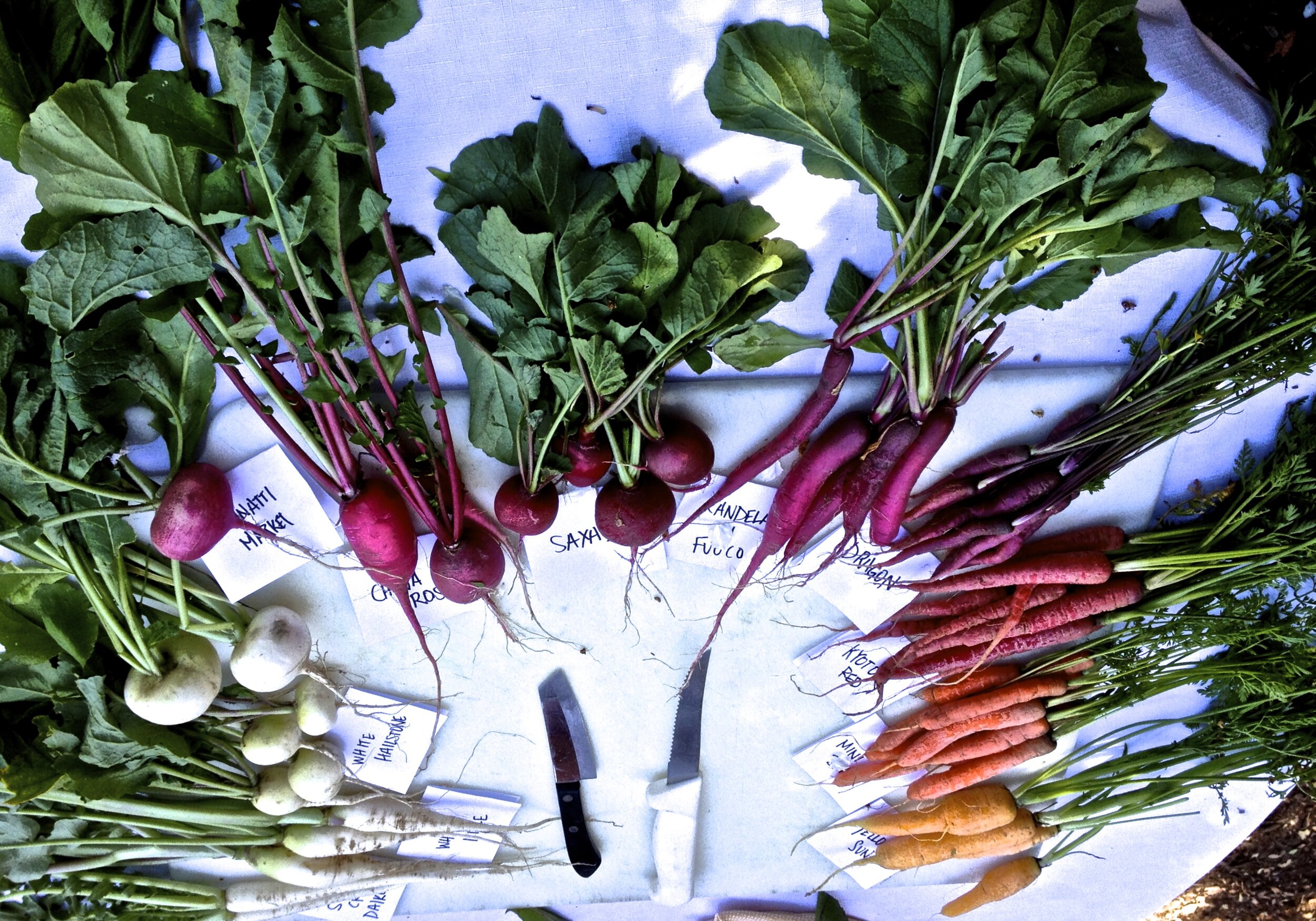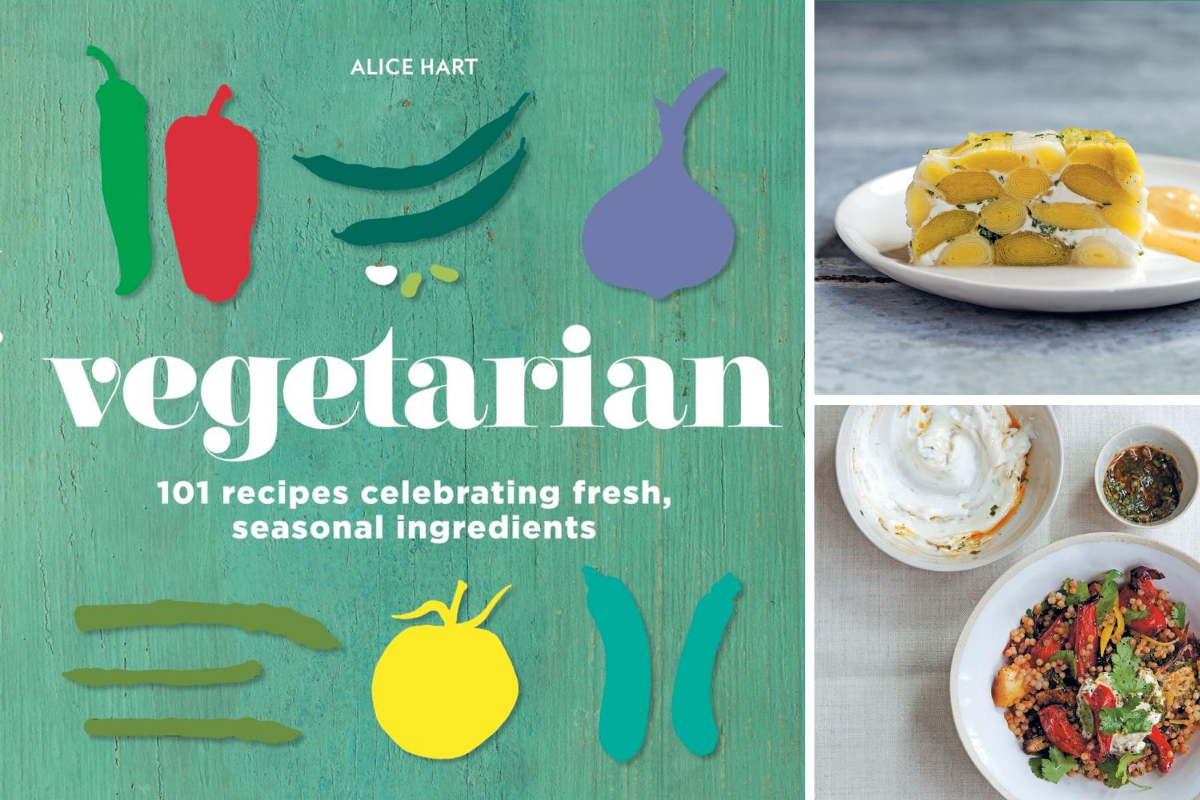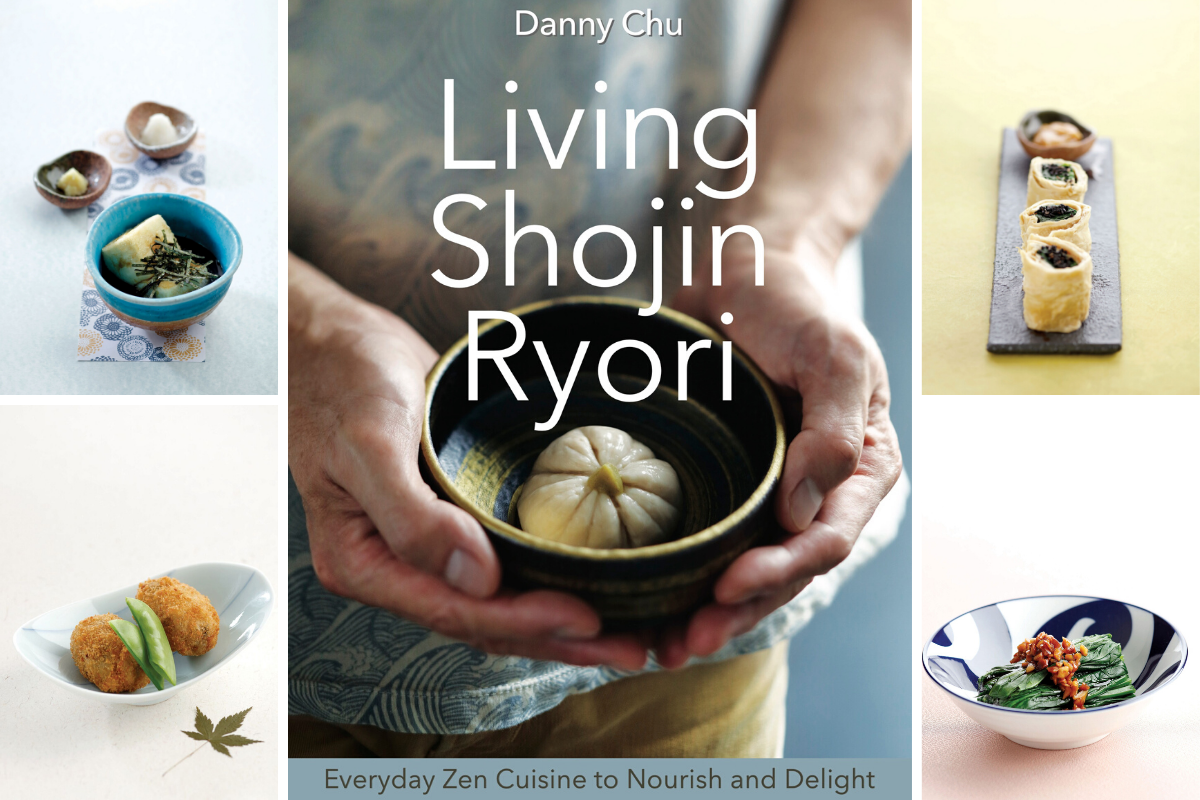Behind the Cookbook: The Savory Way
Deborah Madison is a prolific cookbook author, and founding chef of the groundbreaking Greens Restaurant (opened in San Francisco in 1979 and still going strong). She has been instrumental in shaping attitudes to meat-free eating – ironic, given that Madison is not actually vegetarian.
Madison made vegetables the star of the show before it was fashionable. In her 2020 memoir An Onion in my Pocket: My Life with Vegetables, Madison writes of the 1970s: “The rap that came with vegetarian food was well deserved.” In The Greens Cookbook, first published in 1987, and The Savory Way (1990), Madison helped to change that, creating dishes with a bold freshness.
Madison’s voice remains as vibrant as her cooking. Deborah spoke to ckbk about why The Savory Way (named IACP’s best General Cookbook and the Julia Child Cookbook of the Year in 1990) remains a favorite of hers, and how attitudes and cooking trends have changed in the 33 years since she wrote her first book.
Even though I wrote The Savory Way a long time ago, it is one of my favorite books. In many ways I feel it is “me” even though I cook more simply now.
Plant-centric ways of eating are much more mainstream now. The pandemic has helped, but even before that it was beginning to change a lot. There are so many recipes for dishes now that we didn’t even think of before, and so many people have found this way of eating beneficial to their figures, their overall health, and their wallets. It has helped that vegetables are so much more varied and plentiful.
No wonder vegetarian food in the 1970s got its bad reputation. Basically no one knew how to cook. Now we know so much more, and cookbooks are so well developed compared to what we had a short time ago. When I started Greens restaurant there were almost no Italian cookbooks. And now? It is so changed.
Good ingredients matter, but I’m not necessarily in favor of worldwide shopping over the internet. How many new ingredients do we need, I have to ask myself.
The Savory Way, despite its l990 publication, is filled with iconic recipes and flavors. Even after all this time, these are still recipes I love and cook – but now there are changes I make…
Olive oil
The language around olive oil has changed because pressing mechanisms have changed. It’s pretty much all first pressing now, and acidity still determines the designation of extra-virgin olive oil. We don’t have ‘light’ olive oil any more and virgin olive oil might just be referred to as olive oil. Extra virgin can refer to your best ‘finishing’ oil.
My recipes for Summer Vegetable Tian and Ratatouille are examples of using extra virgin olive oil as a finishing oil. An example of where one could just say ‘olive oil’ is my Quinoa Salad with Dried Fruits and Pine Nuts, in which both light and virgin are called for.
Other cooking oils
Aromatic sesame or peanut oil refers to toasted oils, which have a great deal of flavor. Light sesame and plain peanut oil are both fairly neutral, and often the two – the light and aromatic – both appear in a recipe to get the right balance.
The vinaigrette in my recipe for Wild Rice and Asparagus Salad has both light and aromatic sesame oils.
Plant ‘milks’
Of course we now have all kinds of ‘milks’ derived from plants (almond milk, soy milk, oat milk, etc), which people can use if they want to, as well as plant-based cheeses and butters.
Vinegar
Vinegar has changed in terms or accessibility. In the book I called for champagne vinegar frequently, but I notice that it’s harder to find today, at least where I live. I use white wine vinegar in its place. I’m still partial to Barrengo red wine vinegar (aged in oak) from California, which I buy whenever I see it. We didn’t know about balsamic vinegar then, (although it does appear a few times) but now we do – and we know the real thing from the ersatz.
Roasted Onions with Sage calls for balsamic vinegar. Today I would use the real balsamic vinegar but far less of it.
Carrots in all colors: Madison is a champion of fresh, local produce
Flour and yeast
Most recipes that use flour call for either whole wheat or all-purpose (plain) white. At that time there wasn’t the explosion of delicious flours we have today, such as Red Fife, purple barley, Abruzzi rye, Sonoran white, and so many others. If you are partial to such flours and can get them, use them!
Similarly, we didn’t know so much about sourdough or long, cold rises of dough made with minimal yeast then. If that’s your preferred style, then again, feel free to make breads that way.
Try Cheese Bread from Rome, Piñón Bread, and the Whole Wheat Buttermilk Biscuits.
Other changes: then and now
Canola oil: I never use canola oil as I feel it’s of poor quality.
Shortening: I would never use vegetable shortening in a pie crust now, but would use butter instead.
Sugar: I don’t put sugar in pancakes today, even though the Popped Millet Griddle Cakes or Waffles calls for a tablespoon.
It was when I was writing The Savory Way that I first decided that I was a home cook, not a restaurant cook – and the recipes in The Savory Way are written for the home cook. But, like I said, I now make them now in a far simpler way!
“I’ve never thought of The Savory Way – or the other cookbooks by Madison – as vegetarian cookbooks. As she once put it, her books are ‘about vegetables’ – simply real food that’s good as it is, not apologies for a meal without meat. Like Madison, I’m not a vegetarian, but I share her unabashed love for vegetables of every kind. So I love the way she brings vegetables out of the wings and into the spotlight, creating complexity by adding different points of flavor and incorporating a variety of textures in her recipes. Her combinations of flavors continue to inspire my own recipes. Her instructions are as clear as if she were looking over your shoulder.” Jayne Cohen
Selected recipes
You can find every recipe from The Savory Way on ckbk in full, but here are a few to get you started…

